

Insurance industry concern over FENZ levy hikes ALSO IN THIS ISSUE: The Contracts of Insurance Bill Marsh McLennan Global Risks Report NZI’s Emma-Kate (EK) Nielsen Aon New Zealand CEO Melissa Cantell Home buyers demanding climate risk info June 2024
New Zealand's professional association representing the interests of insurance brokers, risk managers and consumers.
IBANZ gives strength and support to members enabling them to better meet their challenges and opportunities.
We achieve this through staying involved with government activity and legislative reform impacting the insurance industry, and more specifically fire and general brokers and their clients.
We focus on providing high quality presenters who speak on a variety of fire, general, and business topics under our Continuing Professional Development (CPD) offering to support members deepen their knowledge and broaden their skills.
The IBANZ Code of Professional Conduct provides the public with assurance that members act in a professional and ethical manner. It includes a disciplinary and complaints committee to review concerns that may arise.

Ph: 09 306 1732
www.ibanz.co.nz
Welcome to the winter edition

Thisyear is shaping up to be another challenging one for fire and general insurance, with continued capacity concerns, inflation, reinsurance increases and a greater focus on risk-based pricing.
It seems that consultations will be a key feature, with several already released.
The focus of our lead story is the FENZ consultation on setting the Fire and Emergency Levy for 2026 to 2029.
Looming in the FENZ consultation is a severe impact for many commercial building owners who, under the proposal, will pay the levy based on the sum insured. Previously it was based on the building’s indemnity value which can often be 25% of the sum insured and yet, levies still ran into hundreds of thousands of dollars for many.
IBANZ estimates some will face levy increases of 400% if the proposal goes ahead as set out.
From our review, FENZ appears to have severely underestimated the size of this issue, offering only a 4% drop in the levy rate (which is increasing in July this year by 12.8%).
These issues may well be compounded for some as previously exempt property will no longer be exempt, attracting levy if insured.
Over the years, the services provided by FENZ have extended well beyond the original purpose of putting out fires. The last published breakdown of the 85,425 incidents attended by FENZ in the year to June 2022 showed that 18,453 related to fires (4,703 being structure fires).
Motor vehicle accidents and medical emergencies amounted to 23,069 during that same period.
As most of our readers will know, the funding that FENZ receives is almost exclusively paid for by those who purchase insurance policies covering the risk of fire. That will change in the 2026 – 2029 period with all private and commercial third party motor vehicle policies also attracting a FENZ levy which, in the consultation document, will be $40.12 per vehicle.
All of the additional or increased levies are subject to GST.
Greater complexity is intended to be added to the rating of houses and personal property which will increase the cost of collection further.
The already existing equity issues created by the funding model will be amplified if the proposals go ahead. They will also impact the perception of insurance affordability. Our submission covers all of the aspects and more.
Another troubling consultation back on the agenda is the Contracts of Insurance Bill (COIB) which is led by Hon Andrew Bayly, Minister of Commerce and Consumer Affairs.
Our concerns with this Bill in its current form are many.
The uncertainty created by the introduction of two different levels of disclosure remains. We consider the CCCFA personal, domestic, or household purposes-consumer definition cannot be lifted and shifted for insurance policies.
The potential for confusion and the severity of consequences for clients are significant if incorrect disclosures are made. As such, we call for a clear categorisation of consumer insurance contracts.
While the introduction of an implied term requiring insurers to pay claim sums in a reasonable time is applauded, the vagueness of what may be considered when determining ‘reasonable time’ is of very little assistance. Far greater clarity is needed for this to be effective.
We believe the plans to remove ‘claims made’ policies from the late notified protection provided by section 9 of the 1977 Insurance Law Reform Act will interfere with market competition and will not promote the confident and informed participation of policyholders in the insurance market.
The extent of what an insurer knows includes what is known by specified intermediaries and individuals engaged and employed by those intermediaries. It continues to be too broad and conflicts with duties of priority, confidentiality and privacy owed by brokers to clients.
The material differences between the scope of what an insurer knows via its employees and what an insurer knows via specified intermediaries are so vast that the bill creates an uneven playing field which will be detrimental to the availability of independent financial advice.
It is disappointing how much of our previous submissions and concerns have been overlooked. We will continue our work to be heard so we can minimise the foreseeable harm and imbalance this bill could create.
Melanie Gorham CEO, IBANZ
Welcome


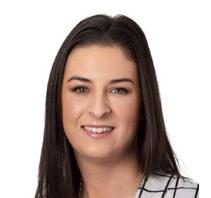






Larrissa Wade joins PSC Connect
Appointments
33. IAG New Zealand confirms new chief risk officer

The power of perspective: Five top takeaways from Marsh’s 2024 Global Risks Report


Home buyers demand flood information



Kiwis face "increasingly unaffordable insurance", warns the Reserve Bank
See page 44 for details on how you can have your very own copy delivered directly to your door...


CoverNote is the official publication of IBANZ and is distributed FREE on a quarterly basis (March, June, September, December) to members throughout New Zealand and associated companies. Additional copies are available at a cost of $7.50 per copy, or 12 month (4 issues) subscriptions at $30.00, inclusive of postage and packaging. The articles or opinions featured within this magazine are not necessarily the opinions of the publishers or IBANZ, and they do not accept responsibility for the content of articles featured within the publication. No part of this publication may be reproduced without the written permission of the publisher. The publishers do not accept responsibility for loss or damage to unsolicited photographs or manuscripts.
IBANZ enquiries should be made to: Melanie Gorham, Chief Executive, IBANZ. Email: mel@ibanz.co.nz IBANZ National Office located at: Unit 4D, 2B William Pickering Drive, Rosedale, Auckland 0632 PO Box 302504, North Harbour, Auckland 0751 Telephone 09-306-1732. Website: www.ibanz.co.nz
Advertising/Content
Liz Cannon, Benefitz Tel 09 477 4702, Mob 021 204 3395, Email liz@benefitz.co.nz

33. Lockton NZ appoints new corporate risk head Advertising Deadlines Bookings 10th of the month prior to publication, material 15th of the month prior to publication.
Design/Production Craig Burkett, Benefitz, Imaging: CTP by Benefitz ISSN 2815-9268
Cover story Regulars 1. Welcome to CoverNote 18. Humans of NZI 38. Ask an Expert 44. IBANZ Contacts 6. Insurance industry concern over FENZ levy hikes Q&A with Melissa Cantell Page 22 Features Delta Insurance opens Central Region office IBANZ
plan insurance A phoenix rises: The Contracts of Insurance Bill 10. 14. Suncorp
Life AMI
on the road 34. 26. 27. 28.
Insurance Bill
20. 30. 31. IFSO
insurance
32. NZI
31. 24.
urges home buyers to
to sell Asteron
survey: More than half of drivers distracted
Government introduces Contracts of
backs
law changes
celebrates 165th birthday
Produced for IBANZ by Benefitz 5-11 Parkway Drive, Mairangi Bay, Auckland 0632. PO Box 33-1630 Takapuna. Telephone 09 477 4700
WANT YOUR VERY OWN COPY OF CoverNote?
HOT OFF THE PRESS! Insurance industry concern over FENZ levy hikes ALSO IN THIS ISSUE: Marsh McLennan Global Risks Report NZI’s Emma-Kate (EK) Nielsen Home buyers demanding climate risk info June 2024
4. Advertorial
CALENDAR
EVENTS
TOPICS
OF
& UPCOMING 2024
Pages 42 - 43
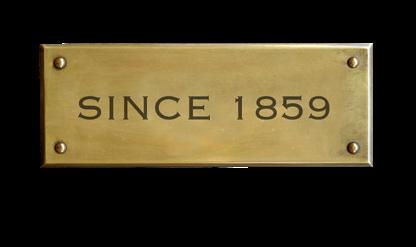
165 years of helping NZ business to grow and succeed .
When NZI first opened its doors for business in 1859, times were tough, but our name soon became synonymous with trust and reliability – values that would serve us well over the coming decades as we established offices around the world.
With scale came strength. Something we needed as we navigated our way through some of history’s darkest days.
We were one of the underwriters of the Titanic, we were there for victims of the devastating San Francisco earthquake of 1906, we experienced two world wars, the world-wide depression of the 1930s, and the tragic events of the Napier and Christchurch earthquakes.
Alongside immense adversity we have also witnessed rapid change.

From steam ships replacing sailing ships, cars replacing horses, the internet re-inventing the commercial landscape - NZI, with the support of our trusted broker partners, has worked together to stay ahead of the game.
With your support we’ve innovated with risk-assurance solutions such as our Electrical Safety Inspections, Fleet Fit driver safety initiatives and cyber insurance solutions, helping our mutual customers to grow and succeed.
Because providing business with the confidence to grow and succeed is what we do. And what we’ve always done.
NZI provides Peace of mind for New Zealand business.
18 59 - 2024
Larrissa Wade joins PSC Connect
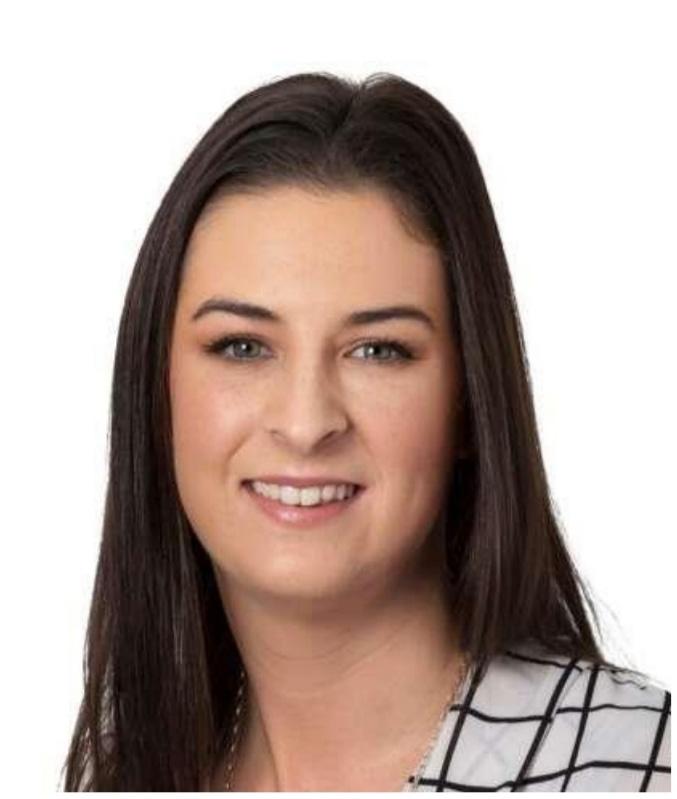
Larrissa Wade director of Gulf Island Insurance joined PSC Connect as a member broker six months ago. Gulf Island Insurance on Waiheke Island is dedicated to offering top-notch general insurance advice, fostering strong client relationships, and expertly identifying risks and exposures to secure the ideal coverage for clients.
We asked Larrissa how her journey is going with PSC Connect. What is your background and experience in the insurance industry?
I have nine years of experience in the insurance industry. My career began as a Personal Lines Underwriter at AMP/Vero, where I worked for three years. Following this, I transitioned to the role of an Insurance Broker, focusing on Liability, Commercial, and Domestic insurance. Over the past six years, I have worked with leading firms such as Rothbury Insurance Brokers, Marsh McLennan and PSC Insurance Brokers.
What attracted you to become a PSC Connect Member Broker over other opportunities available in the market?
PSC Connect stood out to me because of its impressive global reach and unwavering local support. Joining them was an easy decision – I get access to a wide network while still receiving personalised guidance tailored to my needs. The training, marketing, compliance assistance, technology platforms and sense of community have made a significant impact on my business.
How do you believe joining PSC Connect will help you achieve your personal and professional goals?
PSC Connect's focus on personal development ensures I stay updated and competitive in the insurance market. Plus, the network provides valuable industry connections for collaboration and growth. With PSC Connect, I know I will excel both personally and professionally.
Are you happy with the level of support and resources provided by PSC?
Absolutely. PSC offers a tremendous amount of support including access to a range of tools and resources.

In the next 5 years, what do you think the challenges will be for brokers in New Zealand?
· Environmental factors, economic uncertainty and challenges in a hard market
· Consumer expectations and technology integration
· Talent acquisition and retention
· Regulatory compliance complexity
How do you maintain a work-life balance while running your own business?
Maintaining a work-life balance while running my own business, especially while raising a six-year-old boy, is certainly a challenge, but it's achievable with the right mindset and self-motivation. Effective time management is crucial for me. I set fixed hours dedicated to productivity and ensure I stay organised. One of the greatest benefits of running my own business is the flexibility to set my own schedule. This allows me to attend my child’s school sports events and other important activities while balancing my work commitments. Owning my own business and witnessing its growth is incredibly motivating and rewarding. I am excited about achieving many milestones both as a business owner and as part of the PSC network.
What advice would you give to someone looking at starting their own broking business?
If you're considering starting your own broking business, my advice is to carefully evaluate the brokering networks available in the New Zealand market. It's important to choose a network that aligns with your values and offers continuous support. For instance, Dave Penfold and his team at PSC provide me with extensive support and guidance. Their stepby-step process made setting up the business much more manageable and less daunting. Finding a network that offers this level of assistance can make a significant difference.
4 June 2024
If you are interested in starting your own broking buisness give Dave Penfold (021 409 400) a call to discuss your options.

BE YOUR OWN BOSS


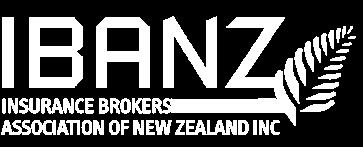
5 www.covernote.co.nz
Unleash Your Potential as an Insurance Adviser Join our network and elevate your career with: · Uncapped growth opportunity · Support from a passionate and professional team · Strong insurer relationships both local and international · Exclusive schemes and facilities · Marketing, professional development and product training support · Compliance assistance · Web based technology platforms PSC Connect, part of the ASX listed PSC Insurance Group which has over $2.5b in gross premium, and are experts in providing support and assistance to financial advisers. Take charge of your future. Contact us today! Proud members of: For confidential enquiries, call: Kelly Sullivan 0800 772 5433 kelly@pscconnectlife.co.nz For confidential enquiries, call: Dave Penfold 021 409 400 dpenfold@pscconnect.co.nz

Insurance industry concern over FENZ levy hikes 6 June 2024 Cover Story
For decades, levies on insurance premiums have funded New Zealand’s Fire and Emergency service (FENZ), with 95% of the organisation’s funding paid for by insurance buyers in the year to June 2023.
While the insurance sector has delivered millions to the firefighting and emergency services, further demands from FENZ are set to place significant strain on insurance buyers and the insurance market. From July, the levy on vehicle, house and other property insurance is set to rise by 12.8%, with another round of significant changes planned in two years.
Legislative changes are set to push the levy even higher from 2026. New levy provisions in Part 3 of the Fire and Emergency New Zealand Act 2017 will also widen the net for insurance levies, causing significant concerns about insurance affordability and foreseeable issues for the market.
FENZ DEMANDS
From 2026, FENZ is proposing to increase the overall levy by a further 5.2% on top of this year’s near 13% hike in order to cover its costs.
FENZ claims the extra funding is needed due to a rise in natural catastrophe incidents, but it has already seen levy revenue rise from $392 million in the year to June 2017 to $673 million last year.
The insurance industry and insurance buyers contributed most of that amount, with the Crown only supplying $10 million a year in direct FENZ funding.

Critics including former Insurance Council of New Zealand CEO Tim Grafton, believe the levy model places too great a burden on insurance buyers, giving the uninsured a free ride.
FENZ’s latest levy increase plans have drawn scrutiny from coalition government ministers in recent months.
In April, ACT MP and Internal Affairs Minister Brooke Van Velden said she was “not yet convinced that such a [levy] increase is justified in 2026."
Van Velden has asked FENZ to look for cost savings to keep levies affordable for consumers. The minister said she would assess funding alternatives to ease the burden on levy payers.
Van Velden added: “I also consider it important that FENZ demonstrates a high level of accountability. I also acknowledge that it is levy payers – individuals, households and businesses – who will pay for any increase,” the Minister added.
FENZ has been asked to provide evidence of its need for a further 5.2% hike from 2026, given the “already substantial 12.8% increase” from this year.
The fire and emergency service has also been told to outline the key outcomes the extra money would deliver, and analyse lower levy rate options.
The organisation says more money is needed as it deals with a wider range of emergency risks.
A FENZ spokesperson said: “The range of activities we
www.covernote.co.nz 7
are now responsible for is significantly broader and more complex than any of our precursor organisations, and the new approach to levy rates is intended to help address this change.
“The options outlined in our discussion document are only proposals at this stage,” FENZ added.
MOTOR AND PROPERTY LEVY CHANGES
Following July’s increases, the next round of levy rate hikes will take place between 2026 and 2029.
Car insurance will be hit with a significant levy increase. The levy on full-cover motor insurance will rise from $9.53 later this year to $40.12 per vehicle by 2029.
“This is going to create insurance affordability issues for domestic personal lines covers and commercial fleets,” says Duane Duggan, head of legal at Gallagher. “A four-fold increase will have a major impact.”
The levy on residential property insurance will also be readjusted. A levy of 11.95 cents per $100, capped at $100,000 per property will be lowered to a 1.85 cent levy on every $100 insured, up to a maximum sum insured of $625,000.
Like all New Zealanders, IBANZ and our members support FENZ having the appropriate resources to ensure they can deliver their vital services and support when we need it.
Mel Gorham IBANZ chief executive
Duggan says this will be “very complex for brokers and insurers to administer.
“Calculating levies will become quite complex, especially for mixed-use buildings,” he adds.
Major changes are also planned in the commercial property space, with owners of older commercial properties set to be hit with significant insurance levy increases.
The non-residential property insurance levy of 11.95 cents per $100, uncapped, will change to 11.51 cents per $100 insured, uncapped. Crucially, the levy will be charged against the total sum insured rather than the indemnity value.
Historically, the commercial property insurance levy has been charged against the (depreciating) indemnity value of a building. However, from 2026 insurance buyers will need to pay a levy against the total sum insured, leading to much higher rates.
This will be a major challenge for owners of older properties with a large difference between the indemnity value and total sum insured.
IBANZ chief executive Mel Gorham says charging commercial property insurance levies against the total sum insured will lead to huge increases for owners of older properties.
IBANZ has conducted a review of 17 commercial property owners across a variety of business types. In 2023, their collective levy total was $1.6 million, which increases to $1.8 million after July this year and then almost doubles to $3.4 million when applying the rate to the sum insured from July 2026. These totals assume that the value of the properties remain static over that period, which will not be the case.
“GST is then added to the levies so in all, an eye-watering average increase that few will be able to bear," Gorham says. “This average is clearly well in excess of the 5.2% proposed increase FENZ is looking for.
“There are a significant number of buildings around the country which will have an indemnity value far lower than the sum insured," Gorham says.
"Because of age or condition, it is not uncommon for indemnity values to be 25% of the sum insured, particularly on rural properties. The increase in levies payable on these will be crippling for many."
Duggan says: “For owners of older buildings, indemnity value can be a third of the total sum insured, so people will face significant cost increases. The FENZ consultation document was totally silent on that; they have dismissed the potential impact on the market out of hand.
“I think their assumptions are wrong, which will lead to large over-collection of the levy and unaffordability of insurance,” he adds.
Gorham believes the levy increases will affect consumer behaviour.
"Clients often perceive levy increases as increased insurance costs because the insurance industry invoices and collects the levies on behalf FENZ.
“That said, IBANZ members are seeing clients cancel or reduce covers as they manage the effects of the prolonged, higher inflation rate, cost of living rises and increased insurance costs."
EXEMPTIONS SCRAPPED
The new levy model casts its net far wider than the current system, with several levy exemptions set to be scrapped.
Insurance on vehicles such as boats and planes will be captured by the updated levy. Insurance on retaining walls, swimming pools, water tanks, water towers, and livestock, growing crops, silage and hay will also lose their exempt status.
A far wider pool of insurance buyers will have to pay the charge.
“Everyone with a pleasure craft down at the marina will be paying a levy,” says Duggan. “Likewise for helicopters.”
Gorham believes the exemption changes are unjustified.
“You have to question the rationale behind the long list of previously exempt property types that will no longer be exempt," Gorham adds. "We think it would be very difficult for FENZ to point to what support would be provided to boats tethered to sea moorings, for example."
CONSULTATION
The changes to the FENZ levy were put out to a consultation, which ended in May.
Industry bodies, including IBANZ and the Insurance Council of New Zealand (ICNZ), have had an opportunity to voice their concerns.
ICNZ’s recently appointed chief executive Kris Faafoi said he was keen to discuss the matter with FENZ.
“Given wider concerns about the challenges around the affordability of insurance, in some instances the proposed changes in levies will have to be passed on to insurance customers through their premiums,” Faafoi said.
“We have yet to meet with FENZ about their proposals and ensure the proposals are appropriate. We have in the past expressed our concerns about the ongoing sustainability of FENZ funding,” Faafoi added.
“Like all New Zealanders, we want FENZ to have the
8 June 2024 Cover Story
appropriate resources, but we also want to ensure that the funding via premiums is sustainable, given that any increase in levy will mean our customers will pay more via their premiums.”
The changes would come into effect in July 2026. IBANZ has called for a two-year lead time to adjust to the new levy model.
“The industry has significant work ahead to ready computer systems for the extensive changes that are preferred by FENZ if they come into force," Gorham says. "There will be a lot involved in understanding the complexities and we have signalled a long lead-in time is necessary to enable change and educate teams so they can properly inform their clients," Gorham says.
Duggan believes the raft of changes will lead to higher back-office costs at underwriter and broker level, which will be passed on to consumers.
“Ultimately, this will also be reflected in insurance premiums. Insurers will have to change their systems and their businesses to capture this new information. This will involve substantial time and cost, so that cost will have to be passed on.”
OUTLOOK
While the coalition government has asked FENZ to justify its levy increases, the insurance industry fears unintended consequences from the new model are being overlooked.
“Decisions about property that would no longer be exempt were recently made by Cabinet. We are concerned that the implications of these changes on insurance decisions may
not be fully understood. We also question what risk of requiring FENZ to support much of the no longer exempt property types present, and how FENZ could assist given the isolation and access challenges that many of them have."
She adds: “As we worked through the consultation document and Cost Recovery Impact Statement, we became aware of a number of errors and assumptions in both that we believe are misleading and undermine the consultation process."
Gorham believes the level of misunderstanding FENZ has reached on the impact of the move from indemnity to sums insured for commercial buildings does not meet the requirements that the levy is equitable and universal. They will lead to a less fair system for those who shoulder most of the levy cost and amplify the already accepted issue of FENZ costs not being shared among all who could benefit from FENZ services.
“The increases for commercial property, no longer exempted property, all domestic motor and commercial third party motor are so significant it is foreseeable they could lead to decisions to not insure or not adequately insure assets, materially reducing the levy revenue,” Gorham says.
“Like all New Zealanders, IBANZ and our members support FENZ having the appropriate resources to ensure they can deliver their vital services and support when we need it.
"IBANZ has submitted an extensive response to the consultation reiterating our previous advice and discussions with FENZ, Internal Affairs and Ministers. We will continue to work on behalf of clients and the industry to be heard.”




03 377 5906 sales@omnimax.co.nz Client Review Online Fact Find KiwiSaver Pro Step 4: Recommend KiwiSaver provider and fund(s) Step 5: Generate Statement of Advice document Step 6: Issue authority to proceed Step 7: Client reviews and agrees to advice online or in person Step 8: Review and execute advice Step 9: Schedule review date Statement of Advice Creation Client Authorisation Step 1: Issue fact find Step 2: Client completes fact find including a risk profiling assessment Step 3: Evaluate fact find Step 10: Update portfolio / client details, issue client review Step 11: Client completes review process and updates details if required Step 12: Revisit advice if required Advice Platform automates your KiwiSaver advice and review processes in a secure digital environment. Easily offer KiwiSaver advice with Advice Platform Learn more at omnimaxsoftware.com or contact us for a free demo

10 June 2024 Feature
A phoenix rises: The Contracts of Insurance Bill
By Andrew Horne, partner, Nick Frith, partner, Lloyd Kavanagh, partner & Hannah Jacques, senior associate, MinterEllisonRuddWatts.

The team at MinterEllisonRuddWatts share their views on the Contracts of Insurance Bill, and how it will reshape the market.
The Contracts of Insurance Bill, now a government Bill (Bill), has had its first reading and has been referred to a select committee. The consultation period is short, with a deadline of June 3 2024 for comment and reporting scheduled for 3 September.
Why is the Bill important?
The Bill proposes to make significant changes to the rights of policyholders, so it is important not only for the insurance industry, but also for its customers.
Insurers will need to make changes to the way in which they offer policies, particularly in relation to the questions they ask private ‘consumer’ customers.
Policyholders should be aware of the proposed changes to their obligations to disclose information to their insurers, their rights if they make a mistake, and a number of other new rights and obligations.
Where has the Bill come from?
The Bill is a development of the previous government’s draft Insurance Contracts Bill, which was issued by the Ministry of Business, Innovation and Employment as an exposure draft but was not introduced to Parliament before the end of the last term.
The former minister Dr Duncan Webb, placed it in the private member’s ballot from where it was drawn last month as a private member’s bill. It has now in effect been adopted as a Government Bill, with some changes.
Both versions of the Bill proposed significant changes to important aspects of New Zealand’s insurance law, including merging various disparate pieces of insurance legislation, introducing consumer protection changes,
11 www.covernote.co.nz
delineating between consumer and non-consumer insurance and introducing fundamental changes to the common law duty of disclosure.
The Government Bill now largely adopts Dr Webb’s version, a notable exception being the removal of some of the “unfair contract” consumer protection proposals.
If passed, the current Bill proposes a lead-in time of three years to enable the industry to implement and bed in the changes. Insurers will likely need this time to make the necessary changes to their policies and systems. What is the purpose of the Bill?
The Bill would make important changes to the rights of insurers and policyholders. The most significant change would fundamentally alter a policyholder’s duty of disclosure. An insurance policy is a contract of “utmost good faith” which imposes a strict duty upon policyholders to disclose to their insurer all information that could influence the judgment of a reasonable insurer in insuring the risk, regardless of whether the insurer asked for the information or not. This in effect requires policyholders to know what insurers view as important, notwithstanding that they may not know anything about insurance.
The Bill proposes to replace that duty with new obligations of disclosure that are intended to provide a better balance between insurers’ need to understand the risks they are insuring and policyholders’ ability to provide them with the necessary information. It would replace the present duty which applies equally to all policyholders with new duties that differ between consumers and non-consumers. These may be summarised as follows:
For consumers: A new duty to “take reasonable care not to make a misrepresentation to the insurer," taking into account all relevant circumstances. This is a fundamental change because it effectively shifts the onus from the customer to advise the insurer of any relevant information to an onus upon insurers to ask questions that will reveal all the information they require.
In terms of whether a statement is misleading, the Bill provides guidance: Relevant circumstances would include the type of insurance, how clear and specific any questions asked by the insurer were, how clearly the insurer communicated the importance of disclosure, and whether the policyholder received financial advice. Insurers will also have new obligations in relation to the presentation of consumer insurance policies.
For non-consumers: Non-consumers (primarily businesses) would have a new duty to make a “fair representation of the risk." This is closer to the existing duty of disclosure, although it does not require customers to understand what is important to insurers.
The Bill sets out what this means, which in summary is that the policyholder must disclose material circumstances that they know or ought to know, every representation of fact they make must be substantially correct, and every material representation as to a matter of expectation or belief must be made in good faith.
The latest version of the Bill introduces a new provision clarifying that failure by a policyholder to comply with an insurer’s request to confirm or amend particulars previously given is capable of being a misrepresentation. It also features new provisions that would clarify the standard expected of a reasonable policyholder.
A new guidance note has been inserted to explain the intended interplay between the statutory duties and the
modified common law duty of utmost good faith, which in effect is that the former will replace the latter only in relation to the duty of disclosure.
The Bill would also protect policyholders from some of the most damaging consequences of breaching their duty of disclosure. An insurer would no longer have the right to “avoid” an insurance contract (i.e. declare it void from the outset) for every failure or misrepresentation by a policyholder. Instead, the insurer will have proportional remedies available, based on how it would have responded if it had known the relevant information and whether the policyholder’s nondisclosure was intentional or reckless.
Remedies would range from reducing the amount paid on a claim (if the insurer would have provided the insurance on different terms) to avoidance of the policy (where the nondisclosure is deliberate or reckless, or where the insurer would not have insured the risk on any terms).
While this appears fair at first glance, its effect is that insurers will only be able to recover the increased premiums they would have charged if they had known the true position when policyholders make claims. The economic effect of this may be that they insure increased risks for which they will not receive increased premiums. Insurers will need to consider how this might affect their underwriting decisions and premiums.
The latest version of the Bill also includes a new clause which provides that an insurer cannot rely upon a misrepresentation by a policyholder who is a consumer where the insurer was not misled by it, or the misrepresentation did not affect the insurer’s underwriting decision.
For life insurance, the Bill provides that where a policyholder under a life insurance policy makes a misrepresentation, the insurer may only reduce the cover to that which a reasonable insurer would have provided had the true position been known.
There are exceptions where the misrepresentation was fraudulent or was made within three years before the death of the person whose life is insured or the date on which the insurer wishes to avoid the policy for the misrepresentation. This provides insurers with some protection against policyholders who knowingly mislead insurers, or who do so innocently but in relation to an issue that is presumably sufficiently serious to result in their making a claim.
For non-consumers, the Bill provides - similarly to the provision for consumer policyholders - that an insurer will have a proportionate remedy available.
The Bill omits some of the more controversial consumer protection proposals that featured in earlier versions. In particular, it omits provisions that would have opened up all insurance contracts to the unfair contract terms regime in the Fair Trading Act. Under the current draft, exclusion clauses are not subject to the unfair contract terms regime. This will relieve insurers of the need to decide which of their policy provisions, upon which they rely to manage their exposure to claims, may be at risk of a legislative fairness overlay.
However, it will apply to other standard form contracts entered into by insurers with parties in trade (i.e. nonconsumers) where the annual value of the trading relationship is $20,000 or more. That is significantly lower than the $250,000 threshold in the Fair Trading Act 1986.
The Bill would also improve the ability of persons who wish to make claims against other persons to obtain information about their liability insurance so they can make claims directly against their insurers, including broad new powers to request information.
12 June 2024 Feature












13 www.covernote.co.nz

The power of perspective:
Five top takeaways from Marsh’s 2024 Global Risks Report
14 June 2024 Feature

The Marsh McLennan Global Risks Report 2024 captures insights from nearly 1,500 business leaders and experts worldwide, providing a short-, medium- and longer-term perspective on unfolding risk to help organisations make informed, data-led decisions. Empowered by perspective from the annual research, now in its 19th year, leaders can take an informed, holistic approach to weathering crises, managing threats, and building long-term resilience.
Continued next page...
15 www.covernote.co.nz
1.
Today, risks are multifaceted, global, permanent and interconnected.
The threats to business operations in today’s world are complex and must be taken on a whole-picture level. Climate change, geopolitical risk, cybercrime – turbo-sped by emergent AI technologies – and economic turbulence are holistic and interconnected. Understanding the impact will empower businesses to either take advantage of these risks or prepare for these risks by building more resilience into their entities.
A key call to action of 2024’s Global Risks Report is for leaders to strike the critical balance between risk facing them now, as well as those threats coming further down the line. The second is to meet the interconnected threats with an interconnected approach; collaboration between government and the private sector will help balance uncertainty, risk investment decision-making and build long-term resilience.
2.
Misinformation and disinformation on the rise in New Zealand.
A newcomer to the top ten global risks list that has surprised some of the report’s audiences this year is misinformation, sitting as the number one overall risk. When a population’s opinions are increasingly polarised, they are more likely to trust misinformation, as they seek out whatever evidence confirms their own beliefs. It means that manipulative narratives infiltrate the public conversation and are adopted as fact. In addition to the public being divided, its trust in what were institutions once looked to as sources of truth is also in decline.
At the time of writing the report, only 41% of Kiwis trust the country’s media, barely half (51%) trust government, and business is trusted by only 58%, the Edelman Trust Barometer for New Zealand found. This has potentially serious implications for crucial issues, such as the legitimacy of election results and public safety messaging – even the concept of truth itself. How can a business or government communicate to the population, if as little as half of the public will believe it? If there’s distrust in business, what’s the cost for a business's brand and believability of its services? The risk is in the delay time between accepting things we know to be true and our preparedness to decide and respond.
3.
Supply chain disruption continues to challenge continuity of business operations.
Having barely had the chance to take a breath since the pandemic, companies across the nation are buffeted by the latest hits on global supply chains by way of shipping disruptions and interstate conflict. According to
commentators, the crisis is the worst in 50 years, driven by geopolitical factors including Middle East proxy wars and the ongoing Russia-Ukraine conflict. These amount to a significant impact on resource prices and availability, while shipping disruptions in the Red Sea are fuelling cost of operations, lost contracts and surging cost of goods. Closer to home, ChinaTaiwan tensions continue to pose a looming potential threat to critical technology components in the supply chain.
4.
Extreme weather will force a roundtable conversation between the public and private sector.
Natural catastrophes and extreme weather events such as floods continue to pose risks to human life, infrastructure and economic stability, with the report highlighting food exports as particularly vulnerable in key regions, New Zealand being among those named. Immediate impacts include a reduction in agricultural productivity and simultaneous harvest failures. With losses reaching billions of dollars, the impact of extreme weather events can no longer be solely shouldered by traditional risk transfer measures and require a multi-pronged approach. Locally, it is increasingly crucial for the public sector, government and the business community to collaborate on mitigation and adaptation measures. In the longer term, environmental factors could radically impact insurability and food security in the next decade, the report also warns.
5.
AI technology is accelerating faster than stakeholders can assess, adapt to or regulate.
AI technology is the subject of both fascination and massive concern; namely that the sheer speed of its advance and uptake is outpacing governments’ and organisations’ ability to adapt. For a breadth of industries, AI presents significant opportunity. It can boost productivity and cost savings by streamlining admin tasks, reducing human error, enabling faster scalability, and can analyse complex data at speeds that were unthinkable even half a decade ago.
At the same time, construction of the foundational AI models which underpin the tools currently available for public use, rests in the hands of a small circle of tech players which largely operate with a lack of transparency. This poses problems for risk managers and insurers to assess risk and implement safety measures. Meanwhile, AI technology is a boon for cybercriminals, helping them streamline their nefarious activities – with faster and more targeted automated attacks, mass phishing emails, quantum-speed password or data decryption and sophisticated deep-fake attacks. These pose risks to trade secrets, health data and critical infrastructure.
A considered approach to deployment of AI, both by corporations and governments, which harnesses its benefits while controlling for vulnerabilities with checks and balances, will be one of the headline themes for the coming years.
16 June 2024 Feature
rural Rewarding in business women

Do you know of a rural businesswoman, who deserves to be celebrated?
The NZI Rural Women NZ Business Awards recognise Kiwi businesswomen at the heart of rural New Zealand.
Women in the rural sector are a force to be reckoned with. Through their passion, commitment and hard work they play a significant role in ensuring communities remain resilient and prosperous. Let’s recognise and celebrate that hard work.
Entries close July 26th 2024 | nzi.co.nz/awards
2024

Home is where the heart is: Meet NZI’s Emma-Kate (EK) Nielsen
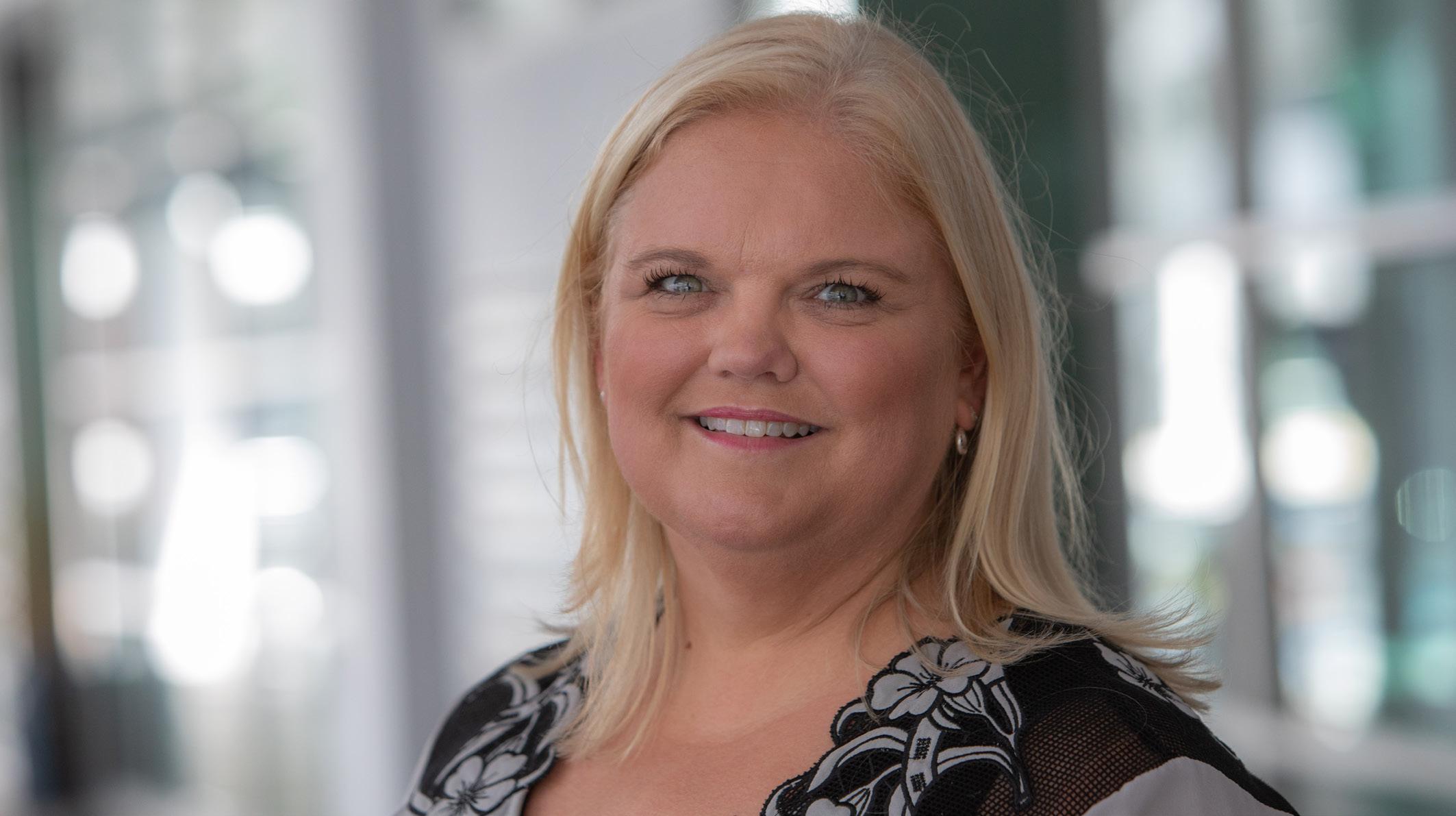
Returning‘home’ to where it all began with a fresh perspective and new-found energy has been a dream come true for NZI’s new Auckland and northern regional manager, EK Nielsen.
EK is a self-proclaimed 'boomerang' – with an insurance career spanning almost 25 years – and has recently returned to NZI for a third time due to an “awesome opportunity to do something different in the insurance space.”
EK has always been driven by a desire to serve the unique and evolving insurance needs of all New Zealanders, and in her new role, has quickly set about forging new relationships, and enhancing previous ones as a key cog in the wheel of NZI’s commercial and personal distribution team.
Her passion for the sector, combined with a love of people, promoting safer communities, and an adrenaline-fuelled family life ensures EK is always on her toes.
As regional manager, her 'dream job', EK says she has the opportunity to work with a wonderful group of like-minded people and bring her years of experience to the fore – mostly gained through her unique roles within NZI over the years. An achievement to savour
EK rejoined NZI earlier this year following a four-year stint working in underwriting and property claims at Ando, and now knows that NZI is where she truly belongs.
“I initially returned as an underwriting manager for the northern region overseeing one of the commercial underwriting teams. I have since moved into the regional manager role where I manage the Auckland-based team that looks after brokers from Pukekohe to the top of the North Island. It’s such a rewarding role, and I’ve certainly found my happy place!”
She says it has always been a long-held goal of hers to work towards the regional manager role. “I’m so excited by the challenge that lies ahead for me and my team, and I’m quietly proud that my goal has come to fruition,” she says.
“Being able to base myself across three Tāmaki Makaurau Auckland offices means that no two days are the same. I’ve relished the opportunity to catch up with some of our brokers already this year. It’s been so special rekindling relationships, and I can’t wait to attend our upcoming conferences and professional development days to put new faces to new names.”
Third time’s a charm
EK’s varied and unique career with NZI began in a Takapuna call centre in September 2000. It was there that her passion for the insurance sector was fully realised.
“Like many Kiwis, I did my OE, though mine took me to Denmark, rather than London, where many other New Zealanders go,” she says.
18 June 2024 Feature
“For me, Denmark has always held a special place in my heart as it’s where I met my husband, Dan. His family are from Fyn (Funen) which is between Sjaelland (Zealand) and Jylland (Jutland). I lived with Dan and his family in Langeskov, his hometown, while working and studying there.
“As a lover of languages, I guess it was inevitable that I’m now able to speak fluent Danish. I thought it’d be a good idea to learn it just in case my name popped up in any conversations!
“After completing my university studies in Denmark, I returned to finish my postgraduate studies at the University of Auckland, while also working full-time at NZI.
“I initially worked on the personal and commercial underwriting lines at NZI before moving into roles as a product specialist and technical training consultant. I then stepped away briefly where I worked with IBANZ before returning to NZI a second time from 2008 – 2019 where I held positions as a partnership analyst and senior business development manager.
“The opportunity to return a third time and work alongside Andy Rowe (now Head of Aon CPF) was a big personal pullfactor for me. Plus, with NZI being a much larger organisation, the development opportunities available are second to none."
Creating safer communities
A strong sense of community has been a key driver for EK over the years, and she feels that an opportunity exists for those fortunate enough to be working in the sector to make a real difference for New Zealanders.
“I think the industry has experienced some challenging times, especially last year following the two major flooding events. As underwriters, brokers and partners, it’s been amazing to see how we’ve all banded together to continue supporting our customers."
After spending time working in claims, EK said she has heard customer stories and seen photos and videos that are simply gut-wrenching. “As we continue listening to our customers, we develop a greater understanding for their specific challenges and needs, and we’re also able to clearly identify how everyone is affected by certain events differently.
“I feel the more we learn about and understand our customers, the greater the support we’ll be able to provide.
“As a team, we are here to provide peace of mind for businesses, our brokers and customers, and help New Zealand become a safer place overall.”
Family ties remain the key
As a proud mum of two young boys, Ollie (13) and Kasper (10), EK says her protective nature perfectly aligns with her chosen career path.
“I’m totally risk averse – my boys on the other hand are complete adrenaline junkies, so it definitely goes with the territory to be working in the insurance sector!
“They’re both keen rugby players and motorcross riders, so for me, spending time with them either on the field or at the track is a real highlight. Don’t get me wrong, watching them out there terrifies me, but I get through it by focusing on whether they’re fed and watered.
“For Dan and I, Ollie and Kasper are by far our greatest achievement. We’re immensely proud of everything they do,
HUMANS of
and we hope they continue to grow to become good humans. The boys drive us insane at times as I’m sure many parents can relate to, but for us, we feel so lucky to have them. Seeing them excel and be passionate about the things they love is truly inspiring!”
With a busy and productive year planned, EK is looking inward for inspiration. “In my experience, being true to yourself, owning your decisions, and doing what you love is the key to any endeavour.”
EK says she can’t wait to get stuck into her new role and is excited to work alongside many of our broker partners and meet those she does not know already.
“I have a brilliant team and we’re 100% committed to doing our bit to help make New Zealand safer for generations to come.”


19 www.covernote.co.nz
Kasper (above) and Ollie (below) tearing it up on the motorcross tracks!


Government introduces Contracts of Insurance Bill
The government has introduced its Contracts of Insurance Bill, with the proposed law passing its first reading on 2 May.
Under the bill, insurers would bear the greater burden of disclosure obligations. Opposition parties have agreed to take the bill to the select committee stage.
In a statement, commerce and consumer affairs minister Andrew Bayly said insurers could currently void insurance and refuse all claims if customers had not made adequate disclosures.
Bayly believes current insurance laws need to be simplified.
"These reforms are long overdue. New Zealand's insurance law is complicated and dated, some of which is more than 100 years old. The recent extreme weather events show just how important a well-functioning insurance system is, and it's about time we brought insurance law into the 21st century.”
Insurers will be responsible for asking relevant questions and will have to make payments within a reasonable timeframe.
Consumers are still expected to take reasonable care to avoid making false statements.
"I have consulted with industry to make sure this bill balances customer protection with providing certainty for the market. In a cost-of-living crisis, we are acutely aware of the need to keep insurance premiums to a minimum," Bayly said.
"This bill moderates the cost of insurance by maintaining things that are working well. The last thing I want is to introduce risk and uncertainty, which would drive up insurance premiums and ultimately harm everyday Kiwis."
20 June 2024 Feature



21 www.covernote.co.nz Star Insure designs policies for drivers who forge their own paths. Customers like yours, who live life on their terms
escape the monotony
vehicles
are anything
ordinary. From classic cars,
vintage,
Star understands
wheels
a means
escape
help protect them. Contact your key account manager to help your customers escape the ordinary. So long, ordinary vehicle insurance. Call: 0800 250 600 Visit: starinsure.co.nz
and
in
that
but
motorsport and
to motorbikes, campers and RVs;
those
are
of
and they


Melissa Cantell
Chief executive officer | Aon New Zealand
Melissa Cantell, appointed last year to lead Aon’s NZ business, speaks to CoverNote about her experiences in the industry and her hopes for the sector. Cantell’s career has included spells as chief executive officer at Fidelity Life and chief operating officer at IAG.
How did you first get into insurance?
Like many people, I joined the insurance industry by accident, but I have stayed on purpose. I joined originally to take up a transformation opportunity, helping to lead largescale change through a customer-focused lens. I had come from the consumer products sector and thought it would be interesting to apply those skills to a different industry – but thought I would move on once the job was done. However, what I discovered was that insurance is not only strategically and intellectually challenging, but also an industry with a deep purpose and ultimately focused on helping people in their most challenging times. That really connected with me – and now I’ve been here for ten years!
How has the market changed since you started?
The most significant shift I've noticed is the rapid evolution of the challenges our clients are facing - the range of risks they face is larger than ever before, whether it's the magnitude of events like weather-related incidents in New Zealand or new complexities surrounding cyber and artificial intelligence.
As the world grows more challenging, Aon’s role as a risk expert and advisor is to be prepared to meet these challenges alongside our clients to help them make better business decisions. How can we ensure that we're the most knowledgeable, experienced and insightful, so that we can provide the best guidance? The type of advice needed is evolving rapidly, unlike anything we've seen before.
What have been the biggest achievements of your career to date?
Over the course of my career, I have been lucky to be involved in some amazing roles doing some interesting things – from working on huge transactions as an M&A lawyer to being part of incredible global FMCG brands, and more recently having the opportunity to lead interesting strategic change within the insurance industry.
However, it’s not the big, exciting things that happened in those roles that stick out for me. It’s the more personal aspects that are the most memorable achievements – the customer that you helped put back on their feet, the colleague whose career you supported, and the communities you partnered with to drive positive social change.
It’s a privilege in a role like mine to be able to have that sort of impact, and making sure I use that platform well and wisely is important to me.
What do you love most about the insurance broking sector?
What I’m enjoying most about being on the broking side is the connection we have to businesses around Aotearoa. I love learning about our clients’ businesses and helping solve their
challenges – no two clients are the same, so you’re always learning and innovating.
That connection to business means we are also deeply connected to the New Zealand economy. Whether we’re working with a small business or a large corporate, helping our clients manage their risks helps keep New Zealand strong, and that’s a really rewarding part of our work.
You have recently been appointed CEO of Aon New Zealand. What are the biggest challenges facing Aon in the NZ market?
Aon’s challenges are our clients’ challenges. Our world has become more volatile - economically, socially and geopolitically - than ever before, and we need to be ready to meet those challenges with our clients. That means we need to be one step ahead, understanding emerging risks, and providing advice and solutions that are relevant and innovative in this rapidly changing landscape.
Where are the biggest opportunities for Aon in NZ?
As always, our opportunities are the flip side of our challenges. If we want to provide the best possible solutions, advice and service to our clients in these volatile times, we need to deeply understand the current and emerging risk landscape, and also deeply understand our clients’ needs. That means we need to be curious, creative and continuously learning – which is what makes our jobs so interesting.
What would you like to see change in the broking industry?
I think there is an opportunity for everyone in the insurance industry to work more closely together, whether it is as an underwriter, a broker, a financial adviser or one of the many other participants in the insurance model – we all have the shared purpose of helping New Zealanders. Of course, we all have our different roles to play within that model and healthy tension is important, but at the end of the day the better connected and more aligned we are, the better the outcomes will be for our clients and customers.
What advice would you give to young people starting out in the broking sector?
My advice is the same regardless of the industry you’re starting out in:
• Be curious – ask lots of questions and be willing to learn.
• Be patient – if you focus on doing your current job well, the next opportunities will come.
• And most importantly – be happy. We spend a lot of time at work and while some days might be harder than others, ultimately if you love what you do and it aligns with your values, even the tricky days will still be rewarding.
23 www.covernote.co.nz Q&A with Melissa Cantell

24 June 2024 Feature
buyers demand flood information
Home

New research from insurers AMI, State and NZI revealed that 86% of people would now consider climate risk when choosing a home, compared to 55% just two years ago.
The research found that house hunters rank weather and natural disaster risk as the second most important factor overall when looking to rent or buy, after price, and before crime rates, school zones and public transport.
An overwhelming 90% said they wanted more information on hazard risks publicly available.
Amanda Whiting, CEO of AMI, State and NZI said: “The findings show that climate concern and natural hazard risk is well and truly front of mind for New Zealanders.
“Issues like flooding are now impacting people’s behaviour around where to buy and rent. People have seen the devastation wrought by storms like Cyclone Gabrielle and are much more aware of the risks.”
The research released in AMI, State and NZI’s latest Wild Weather Tracker, also showed that despite the mild summer, the insurance companies received 6,712 weather-related claims.
Canterbury was the worst-affected area with 37% of claims, predominantly from storms and strong winds.
The survey also found that 79% of people wanted councils to provide more information on weather and natural hazard risks for properties, followed by real estate agents (57%), the government (52%) and insurers (41%).
The latest AMI, State and NZI Wild Weather Tracker offered advice on finding natural hazard risk information.
Whiting added, “Our intention is to be here for the long-term, as a strong, sustainable insurer for New Zealanders.
“As a country, we are facing growing risk with unpredictable weather, alongside other natural hazards like earthquakes. This means claims are becoming more frequent and costly, compounded by inflation, which has led to premium increases. However, we don’t expect to see the same level of increases year on year.
“This is why it’s important we continue to work closely with councils, the government, and other partners to ensure insurance remains accessible for New Zealanders.
“Our focus must be on keeping people out of harm’s way, so we do not see a repeat of what happened during the summer of 2023.”
25 www.covernote.co.nz

Suncorp to sell Asteron Life
Suncorp Group announced the sale of its New Zealand Asteron Life business to focus on its general insurance operations.
The Australia-based group said the transaction continued the reshaping of the company, and would position its NZ general and life insurance brands for ongoing growth and success to benefit “employees, customers and other stakeholders."
The sale - subject to New Zealand regulatory approvals - is expected to be completed within nine months. Suncorp’s New Zealand general insurance business remains unchanged and is part of the Suncorp Group.
Suncorp New Zealand CEO Jimmy Higgins said its increased focus on general insurance business would enable it to meet the rapidly evolving needs of customers.
"We continue to address the challenges of climate change and affordability, through advocating for a more resilient New Zealand at a time when the value of insurance has never been greater."
Suncorp Group said it would be fully committed to the New Zealand Asteron Life business throughout the transition, ensuring minimal disruption to customers, partners and advisers.
Asteron Life’s new owner, Australian firm Resolution Life, has extensive experience in complex life insurance transactions across multiple continents.
The trans-Tasman business has approximately NZ$1.7bn of in-force premium (API) and NZ$30.4bn assets under management.
26 June 2024 Feature

Delta Insurance opens Central Region office
Auckland-headquartered
Delta Insurance has opened a new office in Papamoa in the Bay of Plenty, following its international expansion into Singapore and Australia.
Located in the Tauranga suburb, the central region office serves the Bay of Plenty, Waikato and Hawkes Bay regions, hosting local underwriters looking after brokers and clients in towns and cities across the districts.
Delta Insurance NZ CEO Andrew Beaton said the firm was not a newcomer to the North Island.
“As a born and bred New Zealand company, local business is our mainstay and we’ve addressed the regions very well from our Auckland headquarters, and more recently for the South Island with the introduction of the Christchurch office.
“More specifically, in the Central North Island, a work-from-home underwriting team has operated out of Tauranga for nearly a decade, with Amy Gillum and Kyle Steven having written considerable business across the Bay of Plenty, Hawkes Bay and the Waikato.”
Beaton said a critical mass in the central North Island justified the move.
“In addition to the new premises, we expect to add additional underwriters and support people in due course, matching the expansion of our product portfolio with talented individuals who can help brokers meet the insurance needs of their business customers.”
27 www.covernote.co.nz Feature

28 June 2024 Feature IBANZ urges home buyers to plan insurance
TheInsurance Brokers Association of New Zealand urged home buyers to think with their heads rather than their hearts when committing to a real estate purchase.
New actuarial data supplied to Treasury shows house insurance premiums have jumped by more than 30% in some areas of New Zealand while insurance companies are blocking some regions from being able to get online quotes, as concerns about climate change-driven natural hazards increase.
IBANZ reports its broker members have never been busier as clients are finding it more difficult to self-serve when it comes to securing insurance coverage for their most valuable asset.
IBANZ CEO Mel Gorham said: “Homeowners may now find it more difficult to arrange house cover in order to settle on a newly purchased property, even if it wasn’t affected by last year’s weather events, as insurers are now more sensitive to possible natural hazard risks.

“Insurance brokers can often help homeowners in these circumstances as they have good local knowledge, expert understanding of the insurance market, and access to policy options that individual homeowners can’t purchase directly.”
However, Gorham said home buyers can help by thinking about their insurance needs beforehand.
According to Gorham, buyers need to consider whether their property has increased natural hazard risk potential and seek competitive insurance quotes before committing to a purchase.
“Remember, if you need a mortgage then your lender will want to see evidence that there is insurance cover in place before advancing the funds.
“It’s easy for first home buyers in particular to be wowed by views, school zones or that dream kitchen, but IBANZ urges buyers to stay grounded in reality and make sure the property really is a sound investment before signing up,” she added.
29 www.covernote.co.nz

Kiwis face ‘increasingly unaffordable insurance’, warns the Reserve Bank
New Zealanders who own properties at risk of floods or earthquakes may be unable to afford insurance coverage, the Reserve Bank warned.
Rising premiums may make home insurance "increasingly unaffordable" for households, and insurers may decide not to cover certain properties at all in response to growing risks.
In its latest Financial Stability Report, the RBNZ said residential insurance premiums "significantly outstripped general inflation over the past decade."
According to the central bank, the higher insurance premiums reflect higher construction costs and reinsurance costs as the markets adjust to NZ’s risk level.
"We have also seen the insurance industry move towards greater use of risk-based pricing for residential dwelling insurance, meaning that the value of insurance premiums is more tailored to the specific risks a property faces (e.g. seismic or flood)," RBNZ director of financial stability assessment and strategy Kerry Watt said.
"The long-term trend towards risk-based pricing was evident in certain areas and would pose challenges for some property owners," Watt added.
"The RBNZ believes some owners of high-risk properties could see “a withdrawal of insurance availability.
"We're anecdotally already seeing some policyholders struggling with increased costs in insurance and also potentially in the future availability of insurance," Watt said.
However, the Reserve Bank said insurance remained mostly available and complete withdrawals from underwriters were likely to be rare.
The central bank said the shift to risk-based pricing could encourage homeowners to take mitigation measures to lower their exposure to risks.
To proactively manage affordability issues, the RBNZ recommended that lenders, insurers, governments, and home buyers enhance their knowledge of natural hazards.
"Banks need to be conscious of the ongoing insurability of the properties they lend against, which will require more scrutiny in their lending decisions than currently," the RBNZ said.
"Banks also need to pay closer attention to insurance coverage, as there is a risk that owners underinsure high-risk properties over time in the face of rising premiums."
30 June 2024 Feature

NZI celebrates 165th bIrthday
NZI celebrated its 165th birthday, marking its status as one of New Zealand’s oldest brands.
Established in 1859 - 39 years before the first car arrived in NZ - the company began life underwriting policies from a local office on Auckland’s Shortland Street.
“Today, we have a team of 500 and a network of 3,500 broker partners who all play an important role in providing 300,000 New Zealand business customers with expert advice,” executive general manager Garry Taylor said.
“Over this time, the commercial landscape has evolved progressively, shaped by risks that have grown from advancing technologies, a changing climate, pandemics and geopolitical activity.
“It’s really important, now more than ever, to have a mix of both insurance and protection services to keep ahead of risk,” Taylor added.
More than a century later, NZI continues to develop new products to bolster risk management in NZ.
“Our market-leading Fleet Fit initiatives comprise a broad range of tools such as onboard GPS data analytics, driver safety seminars, culture and leadership programmes, real-time fatigue detection systems and more, to help drivers stay safer on the road,” Taylor added.
Looking to the future, the insurer has also released
an EV Fleet Guide to help businesses adopt loweremissions vehicles.
“We’ve learned a great deal through our very own EV Early Adopter Programme and working with our clients, so we were able to draw on this research when developing the guide,” Taylor said.
The business is also working to combat cyber risks in NZ, partnering with cyber security specialists UpGuard in 2020 to offer customers pre-loss assessments.
“Cyber incidents can be incredibly time sensitive and require expert engagement which is where our panel of breach coaches, legal and IT professionals stand ready to help,” Taylor added.
Other initiatives launched by the insurance brand include research on the risk of electric fires, one of the greatest threats to commercial properties.
“Since then, we’ve identified and rectified 1,500 electrical defects that could have potentially caused considerable fire damage. Our team of electrical inspectors plan to visit at least 1,000 customers annually.
“We’ll always be there when the unexpected happens, but prevention is equally important –because if we can help guard against cybercrime, prevent road accidents and help save businesses from being destroyed by fire, then everyone wins,” Taylor said.
31 www.covernote.co.nz
IFSO backs insurance law changes

Insurance & Financial Services Ombudsman Karen Stevens said proposed changes to insurance contract law would make contracts “fairer and easier to understand” for consumers.
Stevens described the Contracts of Insurance Bill as a long-awaited piece of legislation. She has called for a law change since taking on her role in 1998 when the first recommendation to change insurance contract law was made by the Law Commission.
“I’m pleased that it’s finally on the table, as it’s been 26 years of waiting for the law to be changed. New Zealand is way behind Australia and the UK in this area, so these changes are really overdue,” she said.
One of the Bill’s changes relates to non-disclosure of information by a consumer, something that Stevens says is a very common issue seen in complaints to the IFSO Scheme.
“We see claims declined due to innocent mistakes. Many consumers don’t understand what information they are supposed to tell their insurer, and the consequences if they don’t disclose this information,” says Stevens.
“Forgetting to tell the insurer something regarded as being material to the risk of providing a consumer with insurance (i.e. whether the insurer would have provided cover or not, and on what terms) can be fatal,” she says.
Stevens says this often means no insurance paid out on a claim and no ability to obtain insurance in the future.
“I’m pleased that this law change will require insurers to ask clear and relevant questions, making it easier for consumers to know what information they have to provide,” says Stevens.
“At the same time, there is no option for a consumer to misrepresent the information to an insurer thinking they will get paid – any deliberately wrong information will mean an insurer does not have to pay a claim and can cancel the policy.”

Stevens also welcomes the changes that will mean insurers have to respond 'proportionally' if customers forget to disclose information.
“There are cases we’ve seen where a consumer has been treated for a health condition, like a one-off torn muscle treated by a physio, and then they’ve forgotten all about it. In this situation, as the law currently stands, if the insurer would have done something differently when the policy was arranged – like adding an exclusion or increasing the premium - the claim can be declined and the policy cancelled. This is the case even in circumstances where the health condition has nothing to do with what has been claimed for,” Stevens said.
“With the proposed law changes, the insurer would instead have to respond ‘proportionally’. This means the insurer might charge a higher premium or exclude the particular torn muscle, but pay a claim for a knee replacement. This is a much fairer response in the circumstances,” she says.
Stevens also welcomed changes to force insurers to use simpler language but called on consumers to read their contracts before signing.
“However, consumers still need to read the policy to know what cover it provides. There is cover and there are exclusions,” says Stevens.
A growing number of complaints to the IFSO Scheme are about gradual damage, the Ombudsman said.
Stevens said it was important to note that while there may be cover for accidental damage if it is not also sudden, there will be no cover under the policy.
“We are looking forward to consumers having a fairer set of laws when it comes to insurance, and we hope this Bill gets passed swiftly. Having Minister Bayly introduce this Bill with the intention of passing it into law by the end of the year is great news for consumers and fully supported by the IFSO Scheme,” Stevens added.
32 June 2024 Feature

IAG New Zealand confirms new chief risk officer
IAGNew Zealand CEO Amanda Whiting confirmed the appointment of Rachael O’Brien as chief risk officer
O'Brien has been serving in the role on an acting basis since July 2023, when the insurer’s executive team was temporarily changed in response to Cyclone Gabrielle and the North Island floods. She was previously the executive manager of risk governance.
O’Brien has more than 20 years’ experience as a risk professional in the financial services industry in New Zealand and globally in the United Kingdom, Ireland and the USA.
She has worked across a range of risk-related disciplines including assurance, advisory and governance, with a focus on regulatory, compliance, operational, strategic and conduct risk, IAG said.
As CRO, Rachael is responsible for providing second-line risk guidance and support to the IAG New Zealand business and an independent perspective on risk management to the IAG NZ board.
In other IAG executive team news, Wayne Tippet who stepped out of his role to lead IAG’s response to Cyclone Gabrielle and the North Island floods, will resume his role as executive general manager, claims.
Previous CRO Martin Hunter, who stepped in to cover Wayne Tippet’s EGM Claims role, will now take up a new role to help drive IAG’s transformation programme. The changes will take effect from 1 July.
Lockton NZ appoints new corporate risk head
Lockton
New Zealand has appointed Michael Harrow as head of corporate risk, stepping into the role vacated by new CEO Craig Buckle.
Lockton said Harrow’s appointment reflected the firm’s “continued ambition to grow its footprint in the New Zealand market."
Leading the corporate risk team, Harrow will play a key role in Lockton New Zealand’s ambitious expansion plans, the independent broker group said.
Harrow has held a number of senior roles across the industry, including spells at ICIB and Aon.
He has experience designing and placing multinational insurance programmes and commercial, rural and personal lines in NZ.
CEO Buckle said Harrow’s appointment would help to further accelerate Lockton Pacific’s expansion into the country.
“Throughout his career, Mike has excelled in the New Zealand insurance market by building close relationships with clients and delivering solutions for local and multinational organisations. We are delighted to welcome him to our team to strengthen our corporate risk offering.”
Harrow added: “I look forward to leveraging my background in leading the corporate risk team in a supportive and inclusive environment with the intention of driving growth strategies across the various industry segments we operate in.”

33 www.covernote.co.nz Appointments

AMI survey: More than half of drivers distracted on the road
More than 55% of drivers have admitted to being distracted on the road, while 21% say they have driven under the influence of drugs or alcohol, according to an AMI survey.
The insurer’s national survey found that mobile phones were responsible for distracting 30% of drivers in the past year, while 68% considered them the biggest distraction while driving.
Wayne Tippet, AMI executive general manager for claims, said: “These results are an important reminder of driver safety as many of us get ready to hit the road for a long weekend. We hope that by sharing this information, drivers will remember that little distractions can have terrible consequences, so please be safe."
Driver distraction is highest in younger drivers, according to the study, with respondents aged between 18-24 listing mobile phones, passengers, adjusting GPS/ audio/climate controls, daydreaming, and eating/ drinking as their biggest distractions.
Meanwhile, 25% of those aged over 45 admitted they had driven while under the influence of drugs or alcohol, compared to 17% of those aged between 18 and 44.
Before leaving home, AMI urged New Zealanders to make a plan and set up their navigation systems and temperature controls before driving.
34 June 2024 Feature
No evidence of car service CLAIM DECLINED
Ani* made a claim on her mechanical breakdown policy when her car’s transmission failed. However, her claim was declined because she had breached the service requirement condition in her policy. This condition required Ani to service the car within 5,000 km or 3 months of the start date of the policy. Despite Ani believing she had done so, she didn’t have any evidence to prove it.
She complained to the Insurance & Financial Services Ombudsman Scheme, and an IFSO Scheme case manager investigated.
Investigation
The case manager asked the insurer whether it would accept any claim following a breach of the service requirement condition, and they confirmed that they wouldn’t.
This effectively meant that Ani had no cover under the policy, for the payment of any benefit, from 3 months of the start date of the policy. Despite this, the policy had renewed the following year and Ani had continued to pay premiums for cover under which she could never make a claim.

The FMA has criticised insurance products which, in its view, are poor value for customers. The case manager believed this was the case, as premiums were being paid for no possible benefit.
In making a fair and reasonable decision in the circumstances, the case manager took into consideration that the cover Ani paid for would never have been suitable for her needs.
Outcome
The case manager found that the fair and reasonable outcome was for the insurer to refund the premiums Ani had paid since the date of the effective breach of the service requirement condition, 3 months after the start date of the policy.
Although this was not the outcome Ani had sought, she acknowledged that the breach of the service requirement condition meant that her claim could not be paid. She accepted that the premium refund was a fair and reasonable outcome.
The complaint was partly upheld.
Insurers have the right to decline a claim if conditions have been breached. However, customers should not be expected to pay premiums for cover under which they could never make a claim.
35 www.covernote.co.nz IFSO Case Study * name changed
Consumer says broker misled him about insurance cover

Peter* owned a franchise business, which had a number of insurance policies (material damage, public liability and commercial vehicle cover) arranged by a broker. In mid-2021, Peter was looking to change insurers because he wanted to reduce his premiums. A friend recommended another broker to him.
Peter had a detailed phone conversation with this broker in June 2021 and emailed him the invoice schedule for his current policies. The broker said he would arrange quotes for Peter.
The broker obtained quotes from another insurer for material damage, public liability and commercial vehicle cover, which he passed on to Peter.
Peter and the broker met several months later to discuss the insurance.
The following day, the broker contacted the insurer to say that Peter wished to proceed with cover for material damage, public liability and commercial vehicle cover. The broker also asked for a quote for Directors & Officers insurance with cover up to $200,000. The insurer provided a quote, which Peter accepted.
However, delays occurred, and Peter did not become a client of the new broker until June 2022. The policies were set up at that point. During the delay period, Peter renewed his original policies through his existing broker. He did not take out Directors & Officers insurance at this time.
In October 2022, the franchisor notified Peter of his view that Peter had breached the franchise agreement. Peter and the franchisor were not able to resolve matters and in December 2022 the franchisor terminated the franchise agreement.
In December 2022, Peter contacted the broker to advise of the dispute and asked whether the Directors & Officers policy would cover the business’s legal costs in challenging the franchisor’s action.
The broker advised that the policy would not cover these costs.
36 June 2024 FSCL Case Study

Peter wanted to make a claim, and the broker assisted him with the claims process.
The insurer advised Peter that his claim was not covered by the Directors & Officers policy. The policy provided cover for directors and officers of a business from loss in the event a legal claim was made against them while carrying out their duties for the business. No legal claim had yet been made against the business, by a customer or other party. The franchisor was not taking court action against Peter.
Peter complained that the broker had told him during their first conversation that the Directors & Officers policy would cover him for any dispute arising out of any legal or other problems with the franchisor. He sought compensation of $200,000 from the broker to pay to challenge the franchisor’s decision in court.
The broker said that Peter had not told him of any difficulties with the franchisor, and declined to pay compensation.
Peter asked FSCL to investigate his complaint.
Dispute
Peter said he explained his insurance needs during the first conversation with the broker, but the broker failed to arrange insurance that was suitable for those needs. He said he spent
some time explaining to the broker the serious problems he had had with the franchisor over several years, including a threat by the franchisor made a year earlier to terminate the franchise agreement. Peter asked for insurance in case he needed to take legal or other action against the franchisor in the future. While he was interested in reducing the cost of premiums at the time, it was also very important to him to get cover for any difficulties with the franchisor. Peter said the broker told him that the Directors & Officers policy would provide the cover he wanted, and so he took out the policy. Peter also said the broker had delayed putting the policies in place.
The broker said Peter did not tell him about any difficulties he had with the franchisor. If Peter had done so, the broker would have told him there was no cover available for this type of situation. The broker also said Peter was responsible for the delays in the policies being set up.
Review
FSCL was satisfied the broker had not misled Peter about the cover under the Directors & Officers policy. There was no information to show that Peter had told the broker about his difficulties with the franchisor prior to December 2022. Further, there was no information to show that Directors & Officers cover was discussed in the first conversation. After that conversation, the broker had obtained quotes for material damage, public liability and commercial vehicle cover, but not for Directors & Officers cover. It was not until the later meeting that Directors & Officers cover was discussed, and it was the broker who suggested the cover because Peter’s business was involved in the construction industry.
Further, while Peter said it was important to him to get insurance cover in case he had further difficulties with the franchisor, FSCL noted he had not disclosed these difficulties to his previous broker or insurer when he renewed his policies.
In any event, there was no insurance policy that would provide cover for the situation Peter described. The broker would not have been able to arrange a policy that would have covered Peter for the costs of challenging the franchisor’s termination notice.
In terms of the delay, the emails between Peter and the broker recorded it was Peter who had delayed the setting up of the policies until June 2022.
Resolution
FSCL suggested that Peter discontinue his complaint. However, FSCL did comment that the broker should have kept better notes of his calls and meetings with Peter.
Peter did not respond to our preliminary decision on his complaint, and FSCL closed its file.
INSIGHTS FOR PARTICIPANTS
In this case, the broker had a lot of information about his dealings with Peter. He had all the emails between himself and Peter, as well as the emails with the insurer. The broker also had all the documentation about the quotes and the policies. However, he had not taken detailed notes of the calls and meetings with Peter. Had the broker made full contemporaneous notes, this may have led to the complaint being discontinued at any early stage or prevented a dispute being made to FSCL at all.
37 www.covernote.co.nz * name changed

Benchtop confusion QUESTION
The claim involves a customer's benchtop. The customer wishes to claim against the Insured for a new benchtop. The Insured installed the benchtop two years ago at their customer's house. The Insured advised it appears a join wasn't flush, and so when the customer ran something heavy with force over the join, it has caused the laminate to chip.
Insurer has declined the claim by virtue of Policy Exclusion, 'Reinstatement, Repair or Replacement of your Products' which states, "You are not insured for liability for damage to your product arising out of such product or any part of such product."
Insurer considers the installation of the benchtop falls within the definition of an excluded product. Product being defined under the policy as "Anything (after it has ceased to be in your possession or under your control) manufactured, constructed, erected, assembled, installed, applied, repaired...sold, supplied or distributed by you..."
Our arguments are :-
1) There is no way to determine the root cause of the damage. Even if the benchtop is pulled apart, it is likely this can never be 100% determined. The issue isn't so much the chip, it's that the benchtop warped due to (potentially) water ingress over time. The installer who was engaged by the Insured to install the benchtop has already left the country.
2) Whilst the Insurer has cited Policy Exclusion relating to 'Reinstatement, Repair or Replacement of your Products,' the Insured's policy has the 'Property being Worked On' extension which, in our view, supersedes the Policy Exclusion raised by Insurer.
The 'Property Being Worked On' extension extends to cover the Insured "for all sums that the Insured shall become legally liable to pay for (a) damage to property Insured is or has been working on, where the damage happens in NZ during the period of insurance as a result of an event in connection with the business; (b) faulty products where the Insured's products have caused accidental physical loss or destruction to other tangible property, where the accidental physical loss or destruction happens in NZ during the period of insurance caused by an event in connection with the business."
For the purpose of this extension: Faulty products means the cost of repairing, correcting, removing, or replacement of the whole or part of Insured's product which is faulty, defective, harmful or has failed to perform the function for which it was sold, supplied, manufactured or installed.
Our question is, can the Insured's claim be covered under the 'Property Being Worked On' extension of the Broadform Liability Policy?
In my opinion, the drafting of 2) (b) is unclear.
Based on the words you have quoted, it insures legal liability for faulty products where those products have caused accidental damage to other tangible property.
Where a faulty product damages other property, and the insured is legally liable, that liability will be for the damage to both the faulty product and the other property.
However, does 2) (b) cover liability for damage to both the faulty product and the other property or just the other

To compound the confusion, the definition of faulty product doesn't refer to why it is faulty but to the cost of fixing it. The fact that there is a cost to fix it doesn't automatically mean the product contained a fault.
Do you have a question for our
Ask an Expert
CROSSLEY GATES
experts?
Pool claim denied
Insurer has declined a claim on the pool due to the hydrostatic pressure.
Details of events:
1. Dec 21: Pool is emptied and checked by pool specialist for painting. Hydro valve is placed, no issues arise.
2. Dec 21 afternoon: Pool is empty, no signs of bubbling, hydro removed, pool gets prepared for painting, but specialist advises that a storm is on the way so they will do the painting another day. No indication of bubbling or damage to pool.
3. Dec 22: Storm passes through and that afternoon client notes the pool starting to bubble, specialist fills the pool to stop further bubbling.
Insurers have advised they will decline due to the hydrostatic clause.
It seems a little presumptuous to think it was caused by hydrostatic pressure rather than hydrodynamic pressure?
Thoughts or suggestions are appreciated.

This sounds like a proximate cause issue.
As I understand it, the hydrostatic pressure exclusion relates primarily to fibreglass pools and excludes the risk of the pool popping out of the ground when it lies empty. This occurs because of the pressure of the water in the soil surrounding the fibreglass wall well exceeding the air pressure on the other side (because the pool is empty) and the differential lifts the fibreglass structure out of the ground.
This is a well-known risk and because of this underwriters won't insure it as they expect the owner to take measures to prevent it happening. One of those measures is the hydro valve you refer to.
I am unsure from your post above about the exact sequence of events, but it appears the valve was removed in preparation for painting but this did not proceed on the day in question as rain was forecast. The valve was not reinstalled. The rain fell and the pool lifted.
The rain would have increased the hydrostatic pressure.
If reinstalling the valve would have alleviated this increase and stopped the lifting, I believe the proximate cause was the failure to reinstall the valve in the certain knowledge of rain, leading to the inevitable hydrostatic pressure issue that damaged the pool. In this case, the exclusion may well apply.
Ask an Expert 39 www.covernote.co.nz If so, visit iNavigator, www.inavigator.co.nz, or the IBANZ website, www.ibanz.co.nz - and let us know.
QUESTION
CROSSLEY GATES
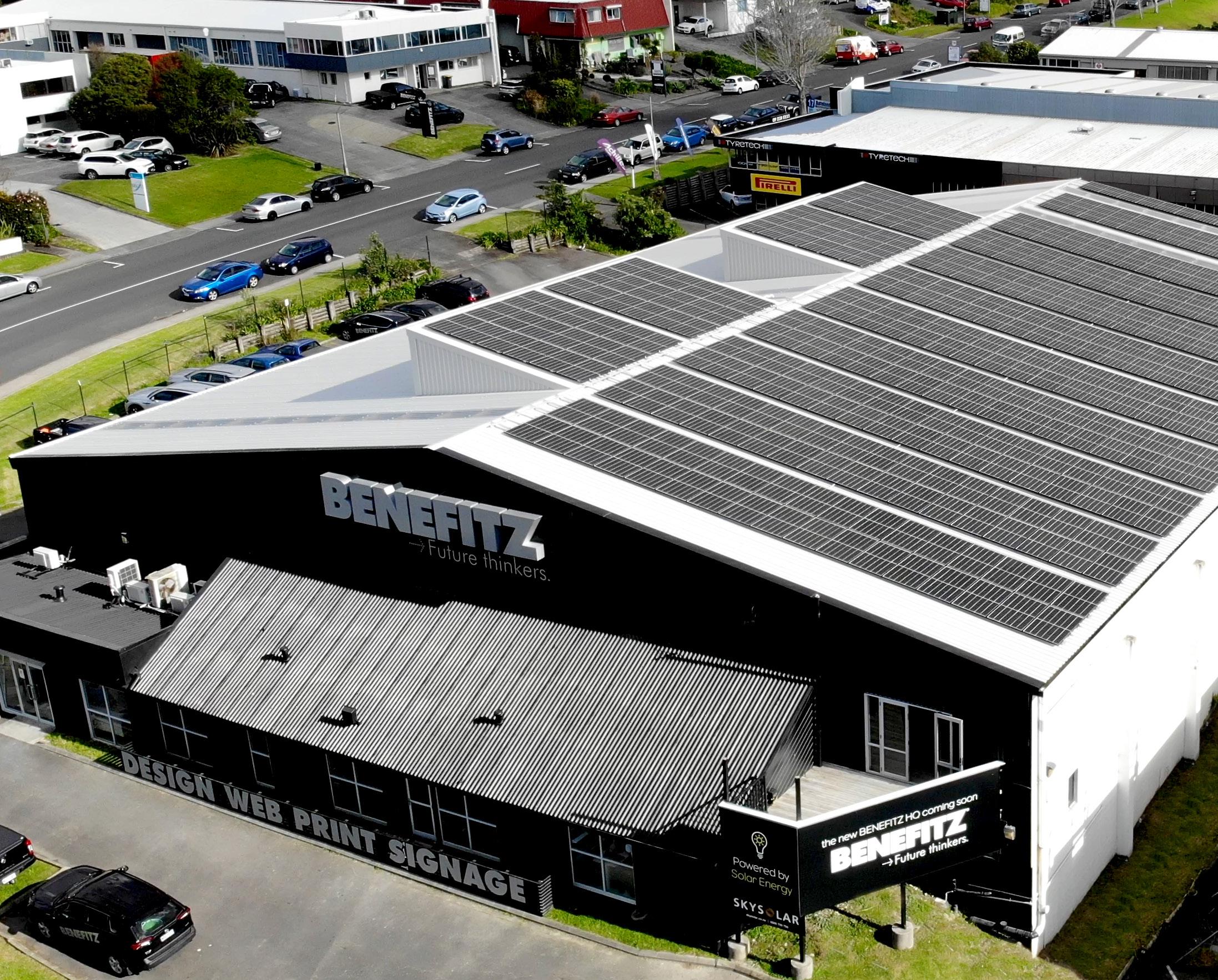
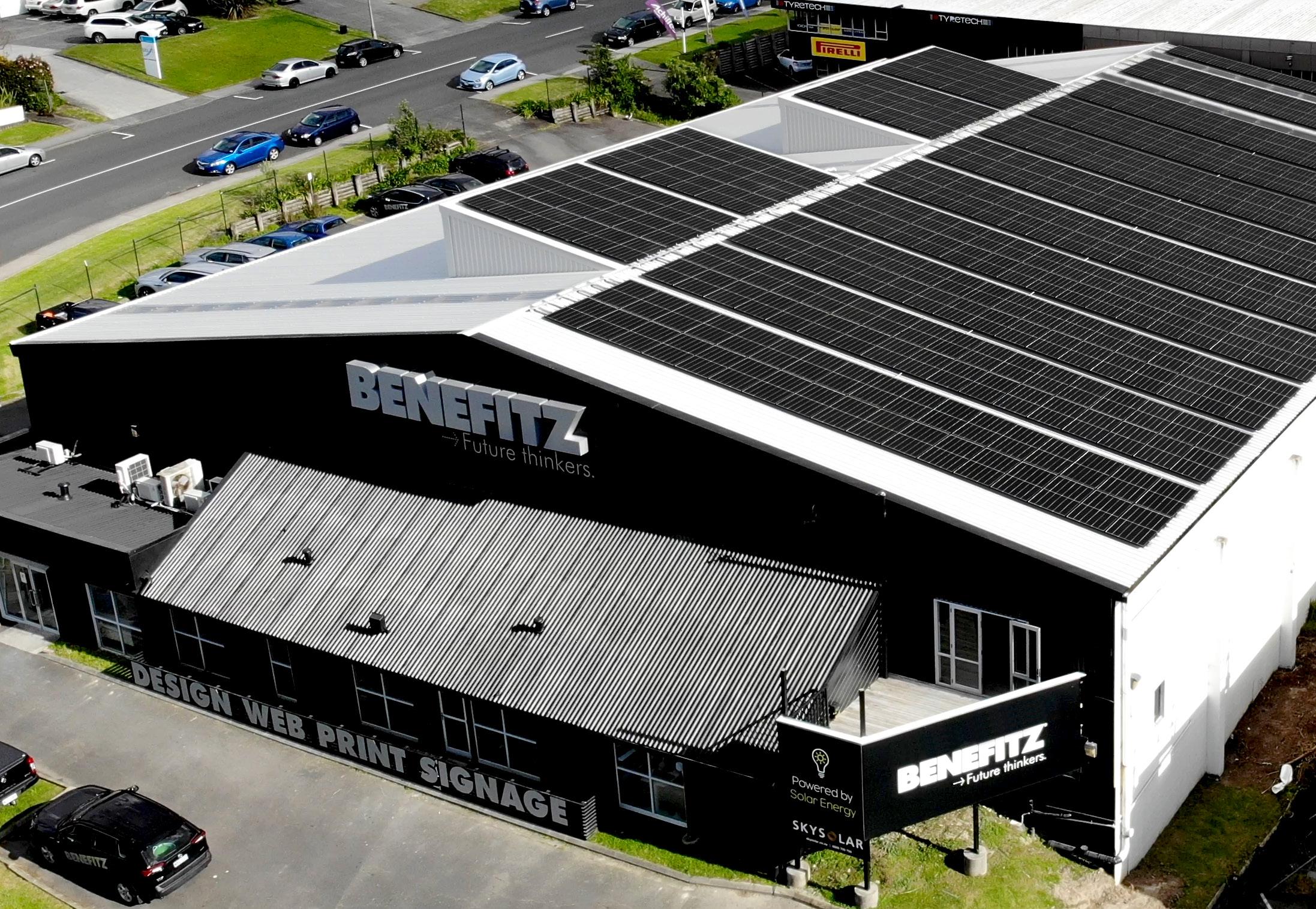
Benefitz achieves Toitū certification Your quarterly CoverNote Magazine is printed at Benefitz using Solar Power!
www.benefitz.co.nz

Carbon
Neutral goal a step closer
Liz signs on with CoverNote
MeetLiz Cannon, our new advertising and content manager for CoverNote Magazine and CoverNote Live. Her enthusiasm and fresh approach are a welcome addition to the CoverNote team. Liz has come on board due the recent retirement of Benefitz director Robert Johnson. Robert had been involved with CoverNote Magazine for over 35 years.
Liz has worked for Benefitz for a number of years, bringing a wealth of publishing and marketing experience with her. She's excited to join the CoverNote team to bring new ideas and ongoing success to CoverNote, whilst continuing to be an integral part of our Channel Mag team. Channel Mag is the North Shore's monthly glossy lifestyle magazine that we also publish, read and enjoyed by 100,000+ locals in print and online.
Previously, Liz has worked in publishing, communications, public relations, marketing, and campaign and event management in Auckland, London, New York and Tokyo. She holds a Bachelor of Arts 2.i Combined Honours degree in English language and literature with theatre arts and drama, a Master of Arts Distinction in Sociology and Anthropology, and a Post-Grad Distinction in Public Relations.
Originally from London, Liz moved to New Zealand in 2006, and has resided happily in Devonport ever since. She's a mum of four amazing kids; her daughter is 21, and her three sons are 19, 16 and 12 years old. She's a devoted supporter of her children's many endeavours, often seen cheering on her younger sons on the football pitch sidelines, supporting them through school, and her older kids through university and their overseas travels, and continues to work hard to be an inspiration to them on as many levels as she possibly can!
In her limited spare time, Liz's passion is all things theatre, especially Shakespeare, having performed in many stage shows over the years in the UK and NZ. Liz is incredibly proud to support her partner James Carrick, a successful playwright, performer and musician. Her current theatrical project is directing his brand-new play, 'Call Girls' with Phoenix Theatre.

The play is being staged for three weeks at the beautiful PumpHouse Theatre in Takapuna this October, and she is beyond excited to see all the hard work and creativity pay off to showcase a wonderfully successful and very funny show.
Liz is delighted to be part of the CoverNote team, and welcomes professionals, organisations and companies to get in touch to help grow what is a long-established, successful and intrinsic print and online platform within the NZ insurance industry.

41 www.covernote.co.nz Introducing Liz Cannon
LIZ CANNON FOR ANY ENQUIRES CONTACT: CoverNote magazine & CoverNoteLive 021 204 3395 liz@benefitz.co.nz
CALENDAR OF EVENTS
IBANZ offers a range of CPD from quality presenters who specialise in providing a variety of fire and general presentations, as well as a selection on soft skills ranging from time management to client care.
JUNE 18 :::::
TOPIC: Indemnity – demystifying the process
PRESENTER: Chris Shannon & Sean McIntyre - Duncan Cotterill
It can be an uncertain time for any client when their insurer tells them that they have instructed an independent law firm to provide indemnity advice before confirming insurance cover. In this short presentation, Chris Shannon and Sean McIntyre of Duncan Cotterill will demystify the process and explain some of the key issues to consider, and what insurance brokers can do to help their clients.
JUNE 25 :::::
TOPIC: Adviser value, pre claims and claims assistance - getting it right*
PRESENTER: Andrew Gunn - IFSO
Clients often expect advisers to assist them with their insurance claims, often mistaking the role of the adviser, insurance broking company and the insurer. These misunderstanding can lead to incorrect expectations of the adviser, the adviser over-reaching within their role, or withdrawing from assisting the customer with their claim and the customer being disappointed and complaining to the adviser and their service.
JULY 2024
JULY 4 :::::
TOPIC: Broker Case Studies
PRESENTER: Helen Twomey - Robertsons
In this webinar, Helen Twomey will discuss recent examples of insurance claims made against brokers – including the circumstances in which they arose and how they ultimately played out. This session will also include helpful tips on what to look out for as a broker and how to deal with certain situations that may arise (particularly in light of the code of conduct and ethical obligations).
ALL WEBINARS: 10.30 - 11.30am
*These webinars: 10.30 - 11.00am
JULY 9 :::::
TOPIC: Light at the end of the economic tunnel – but it’s a longer tunnel
PRESENTER: Brad Olsen - Infometrics
The economic outlook for New Zealand remains cautious, with the outlook for interest rates becoming the key area of discussion for 2024 as inflation remains stubbornly high, even as the wider economy retreats further.
JULY 10 :::::
TOPIC: Time saving online tools to be more productive
PRESENTER: Leanne Coste

This webinar will show you different online software options so you can work more efficiently, give your customers a better experience, reduce admin costs and save you time.
Knowing your client - how not taking the time to fully understand your clients' needs leads to complaints.
Susan Taylor - FSCL
FSCL have seen a number of complaints in recent times where the underlying cause has been that the adviser or broker hasn’t fully understood their clients' particular needs or business. This has led to a client having unrealistic expectations about the extent of their insurance cover or the
Crossley Gates - Keegan Alexander
Crossley will have a closer look at certain conflict situations that insurance brokers may face, such as acting for family or friends. He will also look at compliance with other areas of Standard 2: Act With Integrity of the Code of Professional Conduct for Financial Advisers.
Home Owners, Main Exclusions/Cover Pitfalls
Emma Gabor - Gabor Law
Insurance policies are similar but not the same! In this “back to basics” seminar we discuss the main exclusions, as well as covering off the pitfalls.
JUNE 2024
42 June 2024
JULY 23 :::::
TOPIC: The Risks Associated With Lithium-Ion Batteries and How To Mitigate Exposure
PRESENTER: Leon Midas - NZRA
National Surveys & Risk Assessments (NSRA) are proud to announce their first webinar hosted for a New Zealand audience. NSRA discuss the technical background of a lithium-ion battery, what to look for, and how to mitigate the risk.
JULY 24 :::::
TOPIC: D&O Liability
PRESENTER: Daniel Toebosch & Glenn Dawson - Delta
This session will discuss the basics of D&O coverage and the associated exposures. We’ll also look at the most common claim types along with realworld examples.
JULY 25 :::::
TOPIC: Contract Works
PRESENTER: John Rigby - Ando
John will be talking about building contracts - why have them and what are they for? Insuring responsibilities for contract works and who arranges the cover.
AUGUST 2024
AUGUST 1 :::::
TOPIC: What is stat liability and why do I need it
PRESENTER: Matt Atkinson and Brad Alcorn - Fee Langstone
More to come.*
AUGUST 7 :::::
TOPIC: Home Contents Main Exclusions/Cover Pitfalls
PRESENTER: Emma Gabor - Gabor Law
Aimed at beginners, this is an entry-level seminar on what the home contents policies cover.
AUGUST 14 :::::
TOPIC: Business Interruption – Importance of cover for Additional Increase in Cost of Working
PRESENTER: Mark Anderson - Commercial Loss Management
BI is more than just the insurance of Gross Profit. Cover is automatically provided for Increased Costs as part of the Gross Profit item. But there are limitations to what can be claimed under this item – often referred to as Item 1(b).
AUGUST 21 :::::
TOPIC: Construction Liability – Claims trends and resolutions
PRESENTER: Wynn Williams
More to come.*
AUGUST 22 :::::
TOPIC: Climate Related Disclosures – client impacts
PRESENTER: Mathieu Hemery - Mosaic
Many insurers must now provide annual statements that disclose information about the effects of climate change on their business. These new requirements will have flow-on effects for some of your customers.
SEPTEMBER 2024
SEPTEMBER 3 :::::
TOPIC: AI
PRESENTER: Duncan Cotterill
Underwriting agencies are increasing in numbers and size. In this session we will explore what UW agencies are, their unique value proposition, and how they aspire to change NZ’s insurance landscape.
SEPTEMBER 12 :::::
TOPIC: Agriculture Crops Session
PRESENTER: Peter Ziegler - McLarens
More to come.*
SEPTEMBER 17 :::::
TOPIC: Business Interruption – Common problems, pre-loss & post loss – & how to minimise or eliminate these
PRESENTER: Mark Anderson - Commercial Loss Management
It is often only when a loss occurs that a broker finds out how good their clients BI policy is. It is too late after a loss to retrospectively change the cover. You may not have seen your client’s financial accounts.
SEPTEMBER 18 :::::
TOPIC: Marine Cargo
PRESENTER: Andy Wrenn or Allen Chong - Vero Marine
More to come.*
SEPTEMBER 26 :::::
TOPIC: Interpreting a Policy
PRESENTER: Tom Pasley - Robertsons
While every insurance policy is different and tailored to the insured’s circumstances, this session will provide a general and practical framework as to how to interpret and make sense of insurance policies.
SEPTEMBER 2024 ONWARDS: TOPICS
TOPIC
Treaty Insurance
Trustees and exposure of professional offending
Fraud
10 email shortcuts you should be using every day
GL Claims Case Studies
Carriers and Freight Forwarders
Marine Liability
Insurance Policy Structure
Business Interruption - Claim example
Don't get Hacked
Privacy and your obligations as a financial adviser
Business Interruption - Wages
Microsoft Exel Mastery
Emerging Claims
PRESENTER/COMPANY
Doug Thompson
Duncan Cotterill
Emma Gabor, Gabor Law
Debbie Mayo-Smith
Michael Robertson, Robertsons
Vero Marine
Mel Gorham, IBANZ
Mark Anderson, Commercial Loss Adjusters
Steve Mayo-Smith
Virginia Douglas, Mosaic
Mark Anderson, Commercial Loss Adjusters
Debbie Mayo-Smith
Sophie Curlett, Robertsons
Regulatory Offending Duncan Cotterill
Insurance Industry Legislation Overview
Others
Mel Gorham, IBANZ
JULY 2024
guaranteed
changes may occur
unforeseen
endeavour
reschedule
will be added as topics and presenters are confirmed. Please note, the programme is not
and
due to
circumstances. We do
to
should this happen.
*No details available at the time of print.
Roger Abel
Rothbury Group Limited
PO Box 1596
Shortland Street
Auckland 1140
Mob: 021 952 230 roger.abel@rothbury.co.nz
Jill Comley-Forbes
Chief Executive Officer
Willis New Zealand Ltd
PO Box 2220
Christchurch 8140
Tel: 03 366 5715
Mob: 027 451 8098 jill.comley-forbes@wtwco.com
Angus McCullough (Vice President)
General Manager Marketing & Chief Officer
Aon New Zealand PO Box 1184
Shortland Street, Auckland 1140
Tel: 09 362 9059 angus.mccullough@aon.com
Mel Gorham
Chief Executive IBANZ
DDI: 09 306 1734
Mob: 021 0852 5568 mel@ibanz.co.nz
Contact
Tony Bridgman (Immediate Past President)
Executive Director Marsh Ltd PO Box 2221
Auckland 1140
Tel: 09 928 3015
Mob: 021 873 399 tony.j.bridgman@marsh.com
Duane Duggan
Head of Insurance Legal
Arthur J. Gallagher & Co (NZ) Limited PO Box 68910
Wellesley Street, Auckland 1141
Tel: 09 357 4805
Mob: 021 833 286 duane.duggan@ajg.co.nz
Dave Penfold
Director – New Zealand PSC Connect NZ Limited PO Box 105-241
Auckland City Auckland 1143
Tel: 09 869 6674
Mob: 021 409 400 dpenfold@pscconnect.co.nz
Karen Scard Administration & Accounts Manager
DDI: 09 306 1738 karen@ibanz.co.nz
John Chandler
Chief Commercial and Client Officer
PIC Insurance Brokers Ltd PO Box 58842
Botany
Auckland 2163
Tel: 09 281 6870
Mob: 029 969 3878
john.chandler@pic.co.nz
Samuel Kerr (Vice President)
Insurance Broker
SHARE
PO Box 305415
Triton Plaza
Auckland 0757
Tel: 09 476 1670
Mob: 021 980 435 sam.kerr@sharenz.com
James Shearing Director
Affiliated Insurance Brokers Ltd PO Box 22221
Khandallah, Wellington 6441
Tel: 04 479 8451
Mob: 027 2460046 james@affiliated.nz
Neil Cousins (President)
Broker Services Manager
Steadfast NZ Ltd PO Box 180
Shortland Street
Auckland 1140
Tel: 09 309 7942
Mob: 021 377 942 neilc@steadfastnz.nz
Jo Mason CEO
NZ Brokers Management Ltd PO Box 334012
Sunnynook, North Shore City
Auckland 0743
Tel: 09 869 2785
jom@nzbrokers.co.nz
Julie Walsham
Member Services & Technical Manager IBANZ
DDI: 09 306 1733
Mob: 021 0822 2727 julie@ibanz.co.nz
Physical address: Unit 4D, 2B William Pickering Drive, Rosedale, Auckland 0632
Mailing address: PO Box 302504, North Harbour, Auckland 0751


44 June 2024
IBANZ Board
IBANZ
Toll free: 0800 306 173 www.ibanz.co.nz
Insurance industry concern over FENZ levy hikes ALSO IN THIS ISSUE: The Contracts of Insurance Bill Marsh McLennan Global Risks Report NZI’s Emma-Kate (EK) Nielsen Aon New Zealand CEO Melissa Cantell Home buyers demanding climate risk info June 2024 CoverNote is published quarterly by IBANZ, the Insurance Brokers Association of New Zealand. All correspondence should be addressed to: CoverNote, PO Box 33-1630, Takapuna, Auckland. TO ADVERTISE:
Liz Cannon on:
Mobile:
WANT YOUR VERY OWN COPY OF COVERNOTE? Each issue of CoverNote is packed with vital information, news, commentry and advice for the insurance industry from experts within the industry. To keep abreast of all the issues affecting New Zealand’s insurance broking industry just email info@ibanz.co.nz
e-Mail: liz@benefitz.co.nz Phone: 09-477 4702
021-204-3395
Abbott Group
Abraham & Associates Ltd
Adams Trimmer Insurance 1992 Ltd
Advance Insurance Services Ltd
Affiliated Insurance Brokers Ltd
Christchurch
Christchurch
Whangarei
Paeroa
Wellington
AIB Group Insurance Ltd Lower Hutt
AIM Associates Ltd
Albany Insurance Canterbury Ltd
Albany Insurance Services Ltd
Allied Financial Advisors Limited
Amicus Brokers Ltd
Aon New Zealand
Apex General Ltd
Arthur J. Gallagher & Co (NZ) Limited
Avon Insurance Brokers
Baileys Insurance Limited
Auckland
Christchurch
Auckland
Christchurch
Christchurch
Auckland
Auckland
Auckland
Christchurch
Auckland
Bay Insurance Brokers Ltd Tauranga
BMS Risk Solutions Limited
Bridges Insurance Services Limited
Christchurch
Hamilton
Builtin Insurance Brokers Limited Tauranga
Cambridge Insurance Brokers Ltd
Capital Risk Solutions Limited
Cartwrights Ltd
Certus Insurance Brokers NZ Ltd
Cambridge
Wellington
Ashburton
Auckland
Coast Insurance Whangaparaoa
Commercial & Rural Insurance Brokers Ltd
Crème Insurance
Dawson Insurance Brokers (Rotorua) Ltd
Eclipse Insurance Brokers Limited
Emerre & Hathaway Insurances Limited
FG Insurance Services
First Lane Insurance Ltd
Folio.Insure Limited
Frank Risk Management
FundAGroup Insurance Brokers Limited
Futurisk General Insurance Ltd
Grayson & Associates Ltd
Greenlight Insurance Brokers Ltd
Gregan & Company Ltd
GSI Insurance Brokers
GYB Insurance Brokers Ltd
Hazlett Insurance Brokers Ltd
Hood Insurance Brokers NZ Ltd
Hurford Parker Insurance Brokers Ltd
Hutchison Rodway Ltd
ICIB BrokerWeb
Alexandra
Auckland
Rotorua
Auckland
Gisborne
Gisborne
Blenheim
Auckland
Hamilton
Auckland
Palmerston North
Auckland
Rotorua
Papakura
Waitakere
Lower Hutt
Christchurch
Auckland
Hastings
Auckland
Auckland
Ingerson Insurances Ltd Wellington
Insurance Advisernet NZ Ltd Auckland
Insurance Brokers Alliance Ltd Invercargill
Insurance Design Limited Warkworth
Insurance People (Fire & General) Limited Auckland
Insure 247 Ltd Auckland
JRI Limited New Plymouth
Lockton Companies NZ Limited Partnership Auckland
Malcolm Flowers Insurances Ltd Taupo
Marsh Ltd Auckland
McDonald Everest Insurance Brokers Ltd New Plymouth
Medical Assurance Society
New Zealand Limited Wellington
MW Insurance Auckland
Nelson Marlborough Insurance Brokers Ltd (NIB) Nelson
Neville Newcomb Insurance Brokers Ltd Auckland
Northco Insurance Brokers Ltd Masterton
Northcrest Insurance Brokers Ltd Auckland
O'Connor Warren Insurance Brokers Tauranga
OFS Insurance Brokers Ltd Dunedin
Omni Fire & General Ltd Auckland
Paramount Insurance Agencies Ltd Auckland
Partridge Advisory Limited Auckland
Paterson & Co NZ Ltd Auckland
Penberthy Insurance Ltd Auckland
PIC Insurance Brokers Ltd Manukau
Prestige Insurance Broker Services Ltd Auckland
Primesure Brokers Ltd Auckland
Property and Commercial Insurance Brokers Feilding
Provincial Insurance Brokers Limited Masterton
PSC Connect NZ Limited Auckland
RMA General Ltd Warkworth
Rothbury Group Ltd Auckland
Runacres Insurance Ltd Christchurch
SHARE Auckland
Sit & Blake Limited Auckland
South Pacific Insurance Brokers Ltd Auckland
Thames Valley Insurance Ltd Thames
The Advisers for insurance New Plymouth
Thorner General Insurances Ltd Upper Hutt
Towes Insurance Brokers Ltd Te Aroha
Vercoe Insurance Brokers Ltd Morrinsville
Vision Insurance (S.I.) Ltd Ashburton
Wallace McLean Ltd Auckland
Wanganui Insurance Brokers Ltd Wanganui
Wealthpoint General Limited Auckland
Willis Towers Watson Auckland
IBANZ CORPORATE COMPANY LIST 45 www.covernote.co.nz
New Zealand's professional association representing the interests of insurance brokers, risk managers and consumers.

FIND A BROKER
IBANZ members provide independent professional advice focused on client needs.
CPD FOR MEMBERS WHY JOIN IBANZ?
We set a professional standard through our Code of Professional Conduct and Constitution to ensure members reach an appropriate standard.
IBANZ gives strength and support to members enabling them to better meet their challenges and opportunities.




























































































